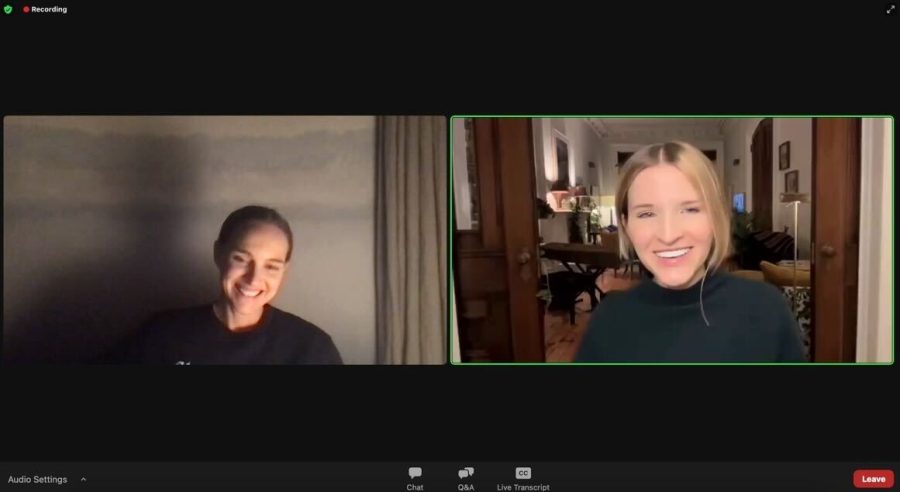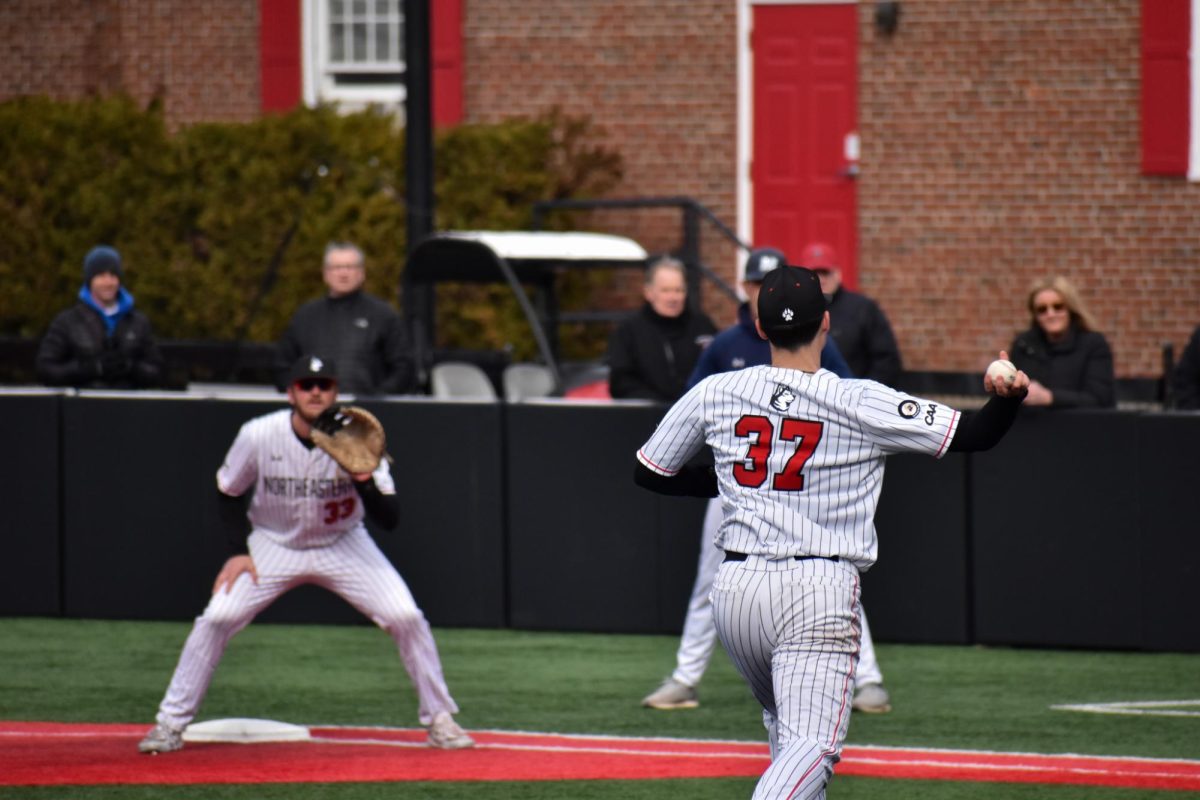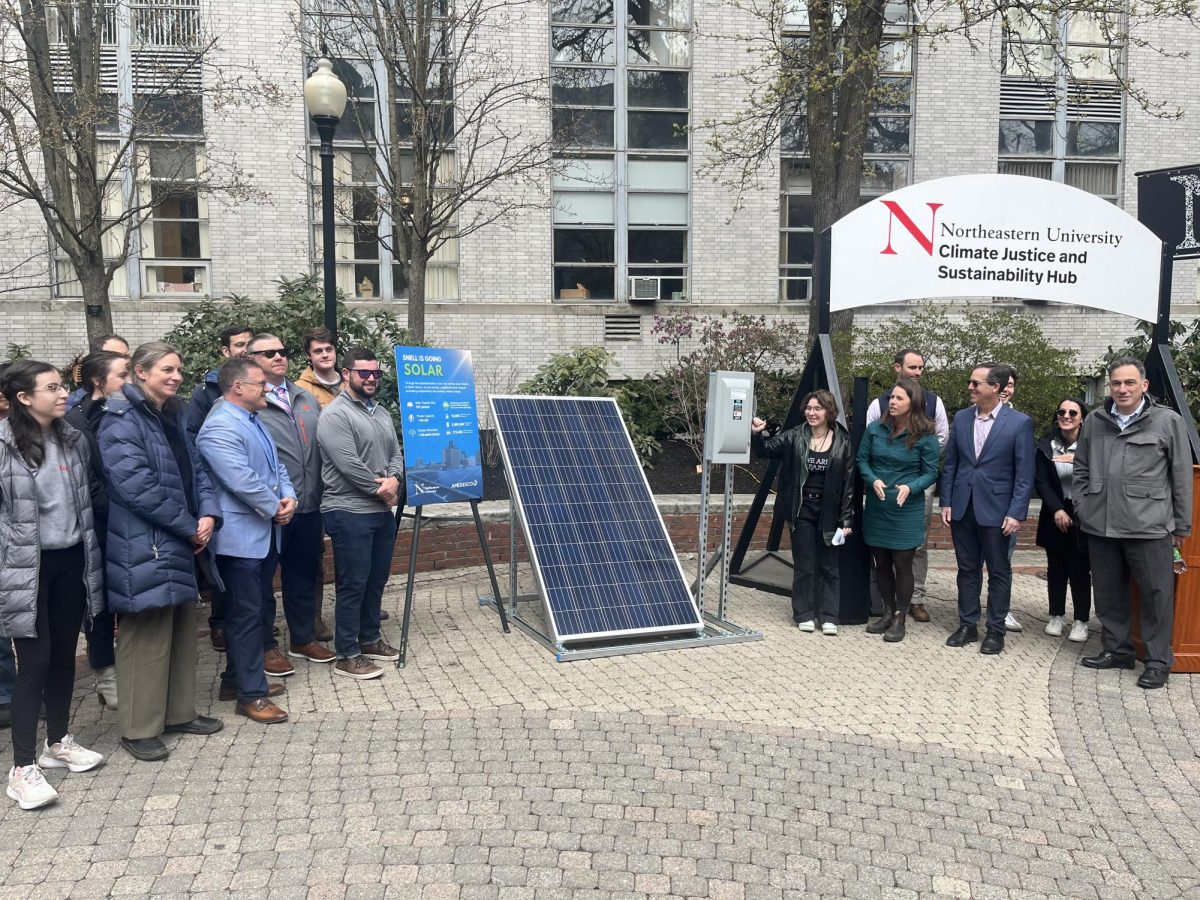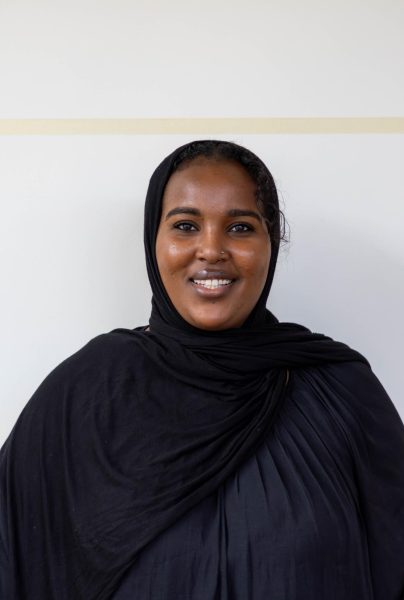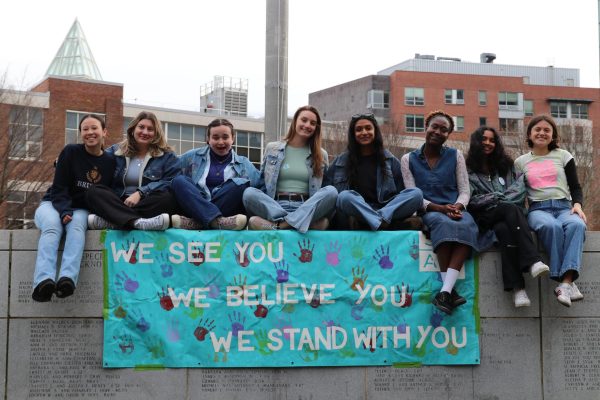Tara Westover, Natalie Portman celebrate paperback launch of ‘Educated’
Author Tara Westover conversed with actress Natalie Portman on Westover’s growth as a person since leaving her survivalist Morman family to promote Westover’s paperback launch of “Educated.” Photo credit to Jane Clements.
February 13, 2022
On Feb. 7, New York Times best-selling author Tara Westover sat down with Academy Award-winning actress Natalie Portman to discuss Westover’s memoir. The author reflected on how she has grown as an individual while striving to live like her dog Leo who simply “goes towards things that are good and away from things that are bad.”
Publishing company Random House partnered with local bookstores, like Brookline Booksmith, across the country to promote Westover’s paperback launch of “Educated.”
In “Educated,” Westover tells of the abuse she faced from members of her Morman family. As she became estranged from her deeply religious and isolationist family, she attended school for the first time at 17-years-old and went on to earn a doctorate from Trinity College.
Bonnie Atterstrom, assistant events director for Brookline Booksmith, said that the publisher gave the store 15 tickets to give to a local high school and donated 15 copies of the book to 826 Boston, a non-profit youth writing organization.
“Being able to offer [compensated] tickets for folks is really, really exciting and especially for students and people who might not normally be able to come,” Atterstrom said.
As part of its partnership with the National Council of Teachers of English, a professional organization for English teachers in the United States, Random House included a copy of “Educated” with the purchase of a ticket and also gave ticket-buyers the option of donating their new copy. Audience members opted in and over 600 copies of the book were sent to students and classrooms across the country.
“Our customers are huge fans of the book. I overhear people talking about it in the store all the time. I think people [were] excited to get to hear [Westover] speak,” Atterstrom said.
At the start of the event, Portman asked Westover how the release of her novel had changed her life. From her vintage-decorated New York City apartment, Westover explained that she originally thought that only “girls who were raised in Idaho who didn’t go to school” would relate to her book but said she was shocked to find out how many people connected with the complicated familial relationships she experienced in her childhood.
When Portman asked about Westover’s “distrust of [her] own experience” as a survivor of abuse in a household that didn’t believe in modern medicine nor public education, Westover emphasized that writing about her childhood as the youngest of seven siblings living in a devout Mormon family allowed her to “make sense of [her] life.”
Much of the discussion focused on how Westover’s educational experience allowed her to form her own understanding of the world, separate from her family’s close-minded viewpoint.
“I was 17 [years-old] the first time that I stepped foot in a classroom because my parents didn’t believe in public education,” she said. “There’s just a lot of things that I did not know anything about. I’d never heard of the civil rights movement. [I] raised my hand in one of my first classes and asked what the Holocaust was.”
While the lessons she learned in school expanded her knowledge of the world, she had a more difficult time moving beyond her family’s exclusionary religious beliefs, she said. Westover recalled a conversation with a fellow graduate student in Cambridge where he argued against her homophobic beliefs and persuaded her to finally abandon her family’s views.
“He kind of separated me out from my argument,” Westover said. “It allowed me to really hear what he was saying because I wasn’t defensive. He wasn’t attacking me. He was attacking my ideas.”
“I wrote him the next morning, like one of the weirdest emails I’ve written in my life: ‘Hi, Andrew, so lovely to meet you last night. I thought about everything you said, and you’re right, I’m wrong. And I hope to see you again,’” she continued.
Having experienced the benefits of a college education firsthand, Westover has spent her adult life advocating for more financially accessible college education. She recently penned an op-ed for the New York Times reflecting on how she paid her way through college through a grueling work study schedule. “It wasn’t easy, but it was possible,” she said, remarking that the rising price of a college education discourages many from earning a degree.
Westover also had advice for how teachers should support students with difficult home lives.
“Your sense of identity is so bound up with your family that I think the risk of a kid hearing [a criticism of their family] as a criticism of them is really high,” Westover said. “The things that help me the most … [were when people] built me up as an individual. And then over time, I eventually got the capacity to look at the situation and decide what I wanted.”
As for what she’s doing next, Westover said she plans to write another memoir after doing “a lot of therapy” and reading many psychology books. She said she has a new creative direction and her next novel will build off of the themes established in her memoir.
“I’m trying to write about the kind of emotional inheritance, I guess, of growing up in a complicated family,” Westover said. “And so if “Educated” is about the decision to set a boundary and go … this one will be about, ‘OK, now it’s gone, but I have all these problems and I keep re-creating the situation in different ways. … And so how do I stop doing that?’”


